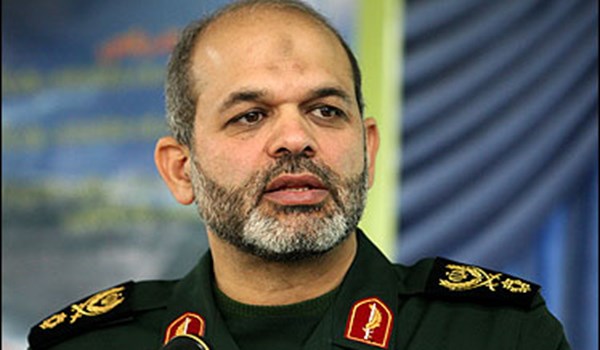

“EU’s Special Purpose Vehicle (SPV, recently renamed as INSTEX) will not influence the Expediency Council’s decision on the approval (or disapproval) of Palermo convention,” former Iranian Defense Minister Brigadier General Ahmad Vahidi, also a member of the Expediency Council and the current president of the National Defense University, told reporters in Tehran on Friday.
“The EU’s yesterday move was only a small part of the European states’ undertakings with regard to Iran under the nuclear deal (JCPOA); and of course, the fate of this minimum undertaking is still not clear in terms of action,” he continued.
He underlined that Palermo Convention should be further examined, and said, “The Financial Action Task Force (FATF) recommendations threaten Iran’s economy and it is a framework adopted by the global arrogance to impose restrictions on Iran and pursue the sanctions re-imposed against Tehran in smarter ways.”
Palermo bill is one of the four government bills seeking to bring Iran’s anti-money laundering and countering terrorism financing standards into line with those defined by the Financial Action Task Force (FATF).
The parliament has approved all the measures but except for the bill that updates Iran’s domestic law on countering financing of terrorism. All the rest have been rejected by the Guardian Council – a watchdog that ensures laws are in line with the Constitution and Sharia.
The bills on Iran’s accession to the Palermo Convention and the convention against the funding of terrorism (CFT) were rejected by the Guardian Council in early November due to some flaws that violated the country’s Constitution. The bills were then amended by the Iranian Parliament, waiting for the next steps in the Guardian Council.
To fulfill FATF requirements, President Hassan Rouhani’s administration has proposed four bills to the parliament for approval, two of which are still undecided, including the Palermo Convention. They have been referred to the Expediency Council for final approval.
Yet, Iran has recently approved a national anti-money laundering (AML), which was a domestically-developed bill.
In its October meeting, the FATF decided to extend the deadline for Iran until February to complete reforms under the specified action plan that includes a list of 9 major moves, including the openning of its financial transactions data bank to the FATF that is headed by the US Department of the Treasury’s Assistant Secretary heading the Office of Terrorist Financing and Financial Crimes Marshall Billingslea.
The Political-Defense-Security and Legal-Judicial Commissions of the EC declared last Thursday that endorsement of the Palermo bill would run against the country’s interests.
In relevant remarks last Saturday, Secretary of Iran’s Expediency Council Mohsen Rezayee announced that the EC’s specialized commissions have rejected the country’s endorsement of the Palermo bill, adding that the final decision will be made in the Council’s next meeting.
Speaking to reporters after an Expediency Council meeting on Palermo convention here in Tehran, Rezayee said that the EC’s specialized commissions have concluded that harms and losses of Iran’s endorsement of the convention would overpass its merits.
“It is a reality but the EC will have the final decision in this regard,” he added.
Asked if Iran is entitled to set preconditions to join Palermo and the blur conditions surrounding this issue, Rezayee said, “Of course, there are much more ambiguities too and it was decided that the pros and cons study them in the next meeting.”
This was the second week in a row that the EC defers the decision on the bill for further studies.
In a news meeting in Bucharest late Thursday, German, British and French foreign ministers officially announced the commissioning of the European special financial mechanism known as INSTEX.







